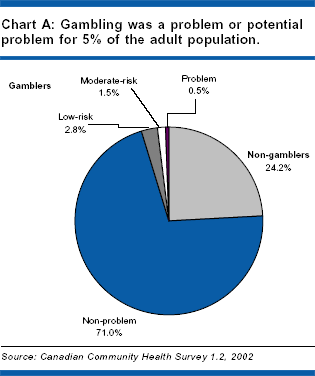Does Gambling Cause Mental Health Issues

- Mental Health Issues In America
- Job Causes Mental Health Issues
- Does Gambling Cause Mental Health Issues Covid 19
On This Page:
Gambling as a form of recreation and entertainment can have a positive impact on your mental health. However, gambling can become a problem when it cannot be controlled and when it significantly affects your finances, relationships, and even workplace. Gambling addiction can stem from deeper emotional or avoidance issues. You will need to deal with these underlying issues in order to change self-destructive patterns, including your gambling. Generally, this type of behavior does not become a problem. However, some people develop a gambling addiction or gambling disorder. 2 A gambling disorder or pathological gambling is a pattern of behavior that severely impacts a person’s family, job, or personal life.
 Approximately 10 million people in the United States live with a gambling addiction problem. A gambling addiction occurs when a person continues to gamble despite negative effects that may impact their finances, relationships, or well-being. Gambling addiction involves compulsions to seek out gambling, betting, and wagering, and the end result can be devastating for the gambler as well as his or her family.
Approximately 10 million people in the United States live with a gambling addiction problem. A gambling addiction occurs when a person continues to gamble despite negative effects that may impact their finances, relationships, or well-being. Gambling addiction involves compulsions to seek out gambling, betting, and wagering, and the end result can be devastating for the gambler as well as his or her family.Substance Abuse and Addiction. Video: Living Day-to-Day With Bipolar. Gambling With Your Health. Greater access to gambling can increase addiction. Causes, symptoms,. If you answered yes to any of these questions, gambling could be a problem. If you’re not sure how your gambling affecting you at this stage, our self assessment may help. Although a lot of people gamble to escape feelings of depression or other mental health problems, gambling can actually make these conditions worse.
1People who struggle with a gambling or shopping problem often hide their issues out of shame and a desire for secrecy.
This often delays recovery and treatment and allows a gambling addiction to lead to other serious effects, including loss of jobs, failed relationships, and severe debt. Problem gambling is often associated with mental health problems, including depression, anxiety, and mood disorders. Gambling problems don’t just affect mental health. People who have struggled with gambling benefit greatly from treatment and often also need family counseling and financial coaching to fully recover.
Christine’s Story
“You have to do the work in all areas of your recovery, including your finances. I chose to not do all the work necessary for a well-rounded recovery. Even though I was no longer actively gambling, my financial and legal troubles told me I still needed to work with a gambling addiction specialist. After my troubles occurred, I worked with a specialist for a year while I went through the legal mess I created.
“Now that I have reached eight and a half years in recovery from gambling addiction and alcohol abuse, I know it is my job, my duty, to be of recovery service to others. Life today is good!”
— Read Christine C.’s story and more at www.HeroesInRecovery.com
The Cost of Problem Gambling in Your Community
Studies have shown that more than $6 billion has been lost each year to gambling addictions. This problem is far-reaching and can cause both individuals and companies to panic and act in ways they would not normally act.1
Gambling addictions also place a severe hardship on prison systems, public assistance programs, and legal systems. There are many consequences of gambling addictions that result in community economic costs.
Some community gambling addiction dangers include:
- Increased rates of unemployment
- Bankruptcy
- Fraud and check forgery
- Forced home sales
- Increased alcohol and drug abuse
- Poor mental and physical health of individuals and families
How Gambling Impacts the Individual and Family
While the addicted person will definitely suffer during a gambling addiction, that person’s family will also face challenges. The stress that the problem gambler experiences may cause irritable behavior, secrecy, and arguments. Calls from creditors and bill collectors erode relationships. Financial strains impact all family members, and strained relationships make the experience difficult for even extended family members, friends, and colleagues.

The children of gambling addicts also suffer in many ways, including:
Mental Health Issues In America
- Emotional neglect and abandonment (and even physical abandonment) when one parent is consumed in an addiction.
- Stressed and irritable parents may lash out at children angrily, and even if they do not, these children can sense their parents’ tension.
- Children of people with gambling addiction are at higher risk of experiencing their own addictions later in life.
Job Causes Mental Health Issues
If You Can’t Stop Gambling, Your Life Will Be Forever Changed
The effects of a gambling addiction are often quite clear. A large number of people who engage in compulsive gambling will use credit cards and debit cards to pay casinos or internet gambling organizations. If you engage in problem gambling, you will most likely incur debt, damage your relationships, and lose sight of your goals in life.
There are many ways that an untreated gambling addiction can change your life.
- Family problems are very common. Almost all compulsive gamblers around the world have issues at home with their family because of their addiction.
- Financial devastation is unavoidable. People with a gambling addiction will go to extreme measures to get money to gamble. Many people eventually resort to stealing, taking out large loans, or other desperate means that are out-of-character.
- Job loss is very high among gambling addicts. Gambling addiction may lead you to miss work, or come to work distracted. Gambling addictions will interfere with work relations, promotions, and employment.
No matter how bad a gambling addiction has become, it is possible to turn things around. Call us for help today at 269-280-4673.
Gambling has various effects, one of which is on the mental health of the gambler. While it is necessary to know these effects, it is also of utmost importance to know about mental health.
Mental health
According to Erica Thompson, LMFT, LPCC “Mental health struggles are real. They can be painful. You may feel alone. In some of the darkest times, you may feel like something is “wrong” with you to the core.”Mental health is a level of psychological and emotional well-being; it is the state of mind we are in, the way we think, act and even how we feel. It is a very important thing to take note of, and we must be conscious of it at every stage of our life; right from when we are young even up till old age. Having someone to talk to is also very important as it helps to study the state of our mind and it improves our mental health.
While gambling can be addictive and also influencing our mental health; it can be rewarding and risky. It has always been a ticket to end boredom for some people and it makes them feel they are very strong but it can cause anxiety and depression when it becomes addictive. As we take a look at the mental health effects of gambling, we’ll consider its positive side and the risk attached to it too.
The positive effect of gambling on mental health
Does Gambling Cause Mental Health Issues Covid 19
While it is very risky to one’s mental health, gambling sure does open up a challenge to a gambler’s mental health.
Extensive studies have shown that while people retire and do little or no work like fishing or just resting, those that engage in activities requiring heavy thoughts tend to make effective use of their brain. Those that retire and just stay at home will later have some parts of their brain idle while those that gamble will still make effective use of those parts that might have become idle. Though it is not only gambling that requires heavy thoughts it is worthy of note that gambling does require consistent heavy thought.
As the brain is the center of most of the impulses and reactions, it is also the source of the strength attached to mental health. As long as the brain is in good condition, then mental health is also in the right condition. So, gambling is not all that bad and it does have its positive influence.

It is, therefore, necessary to note, that it is this consistent gambling that might turn out to be an addiction and will lead to the negative side effects. When there’s a feeling of comfort; the addictive pain then comes up and then there’s no letting go. So, what happens to mental health when gambling becomes an addiction?

Negative effects of gambling on mental health
The major effect that rocks the boat of gambling is the effect it has on the mental health of the gambler. While it starts gradually and looks like it’s really nothing, it becomes a thorn in the flesh and harms the gambler constantly. Let’s take a look at some of the consistent negative effects. “If your gambling addiction has led to severe social, medical, legal and/or financial difficulties, you may need to find an inpatient program to give a jumpstart to your treatment,” says Marie Hartwell-Walker, Ed.D., a licensed psychologist and marriage and family counselor.
- Depression and anxiety: They are often experienced together because when there’s an expectation as the dice are rolling, it leads t anxiety and then there’s a force of depression that settles in gradually especially when the gambler doesn’t win. Over time, the gambler gets used to it while also beating the mental health of the gambler down.
- Bipolar disorder: It is also called “manic depression”. It is a mental health disorder that results in periods of elevated mood (hypomania) and periods of depression. It is characterized by these two separate moods; the person feels energetic and is able to tackle or face any situation though he/she might give a poor judgment, then it comes with a feeling of depression and the person feels cut out from the world and behaves seemingly opposite to the way he/she once felt.
- Attention deficit hyperactivity disorder (ADHD): Another negative mental health issue is this disorder that results in not being able to be attentive, being excessively active and having difficulty controlling one’s behavior. It is a rampant disorder that can occur during childhood and can be prevalent in a lifetime but it can also be treated. It also duly affects gamblers after continuous moments with gambling.
It is always nice to look at the bright side of things but it’s even better to consider the flaws and side effects. Though, gambling might have its good side; it is a really terrible activity to get used to. There’s a need to gamble with caution if you are ever going to gamble and there’s a need to watch the signs of addiction or mental health issues as it starts so little and becomes an unquenchable fire. Lillian Harris LCPC-C used to say, “So much of mental health work is about giving people a space to be witnessed and held while sharing the good, the bad, and the ugly of human life.” And she is right.